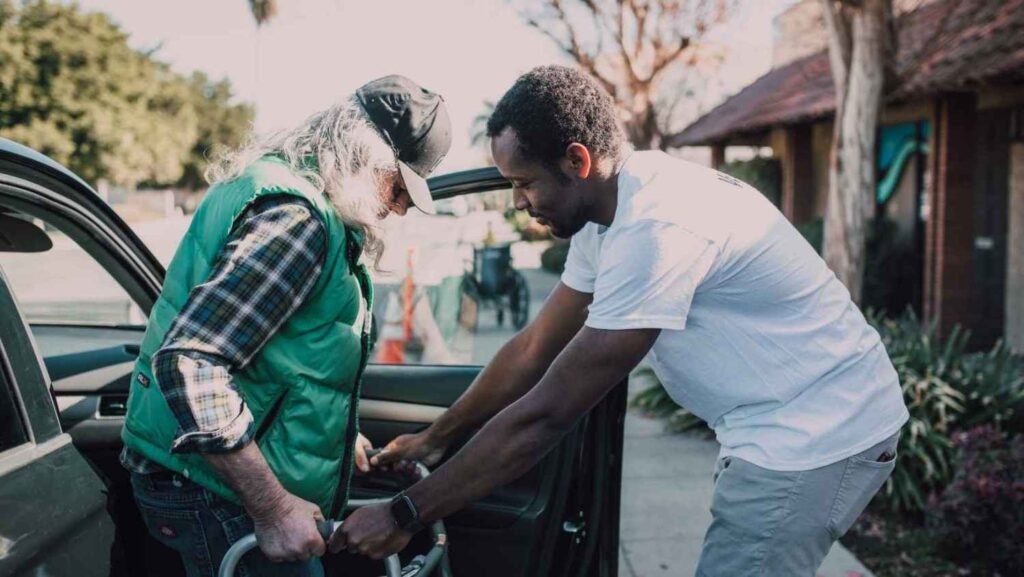Is helping others cliche? While the idea may often be portrayed in stories, movies, and motivational quotes, its value is far from diminished by its frequent mention. Helping others is a timeless principle that stems from empathy and shared humanity. Acts of kindness, whether small or grand, create ripples of positivity that can transform someone’s day or even their life. Beyond the immediate impact, studies show that helping others fosters a sense of fulfillment and purpose for the giver, proving that kindness is mutually beneficial.
While it may seem overused as a concept, the act itself remains powerful and necessary in a world constantly in need of compassion. Reframing “helping others” as a conscious choice rather than a cliché can remind us of its immense value and strengthen our commitment to positively influencing the lives of those around us.
When you think about helping others, does it feel like an overused idea or something truly meaningful? Many of us hear phrases like “lend a helping hand” or “make a difference,” and sometimes they can sound like empty platitudes. This raises the question, is helping others cliche? To understand this, we need to look closer at what it really means to help someone. At its core, helping others is about offering support, often without expecting anything in return. It could range from small gestures like holding the door for someone to more life-changing acts such as volunteering time or resources to those in need.
Must Read: Prideful to get help: Overcoming fears of seeming weak
Why Does Helping Others Sometimes Feel Cliche?
Is Helping Others Cliche Because It’s Often Romanticized in Media?
The portrayal of helping others in media frequently contributes to the perception that the idea may be cliché. Films, advertisements, and even social media often emphasize grand, dramatic gestures, creating an idealized image of what “helping” should look like. This romanticized version can overshadow the smaller, everyday acts of kindness that are just as impactful.
For some, this raises the question, is helping others cliche, or have we simply lost sight of its true meaning? The expectation of monumental actions can make genuine support feel undervalued if it doesn’t align with these larger-than-life portrayals. Understanding that impactful help comes in all forms, big or small, can shift this perception. By recognizing the significance of these quieter moments, we can see how authenticity in helping others remains far from being a cliché.
Is Helping Others Cliche When It’s Driven by Self-Interest?
Another reason people may wonder, is helping others cliche, is when acts of kindness are motivated primarily by self-interest. Often, public displays of charity or goodwill can be perceived as performative, designed for recognition rather than genuine care. Social media, in particular, fosters this perception, as people share their acts of kindness online, sometimes with the aim of gaining validation from likes and comments.
This trend can dilute the sincerity associated with helping others and make the concept feel overly commercialized or staged. However, authentic acts of kindness, where the primary goal is to support others without expecting anything in return, remain deeply impactful. The key lies in focusing on intentions and understanding that true generosity does not need to be showcased to hold value.
Is Helping Others Cliche Due to Overexposure to the Concept?
The frequent promotion of helping others, whether through motivational campaigns, workplace initiatives, or self-help messages, can lead to a sense of fatigue. When repeated too often, even the most noble ideas can feel like overused rhetoric. At this point, many might begin to question, is helping others cliche? This overexposure risks turning a genuine human need for connection into a seemingly obligatory or mechanical task.
However, it’s critical to remember that while the delivery of the message may feel repetitive, the value behind it remains timeless. By reframing the idea and focusing on the tangible impact helping others has on individuals and communities, we can rediscover the sincerity behind these words and actions.
Is Helping Others Cliche When It’s Romanticized by Culture?
Different cultures celebrate and encourage helping others in distinct ways, but this widespread cultural romanticization can sometimes make the practice feel formulaic. Through repeated traditions, stories, or even expectations within certain groups, people might begin to feel that the concept of helping others lacks originality.
This cultural emphasis leads some to conclude, is helping others cliche, or is the essence of generosity misunderstood? The truth is that cultural reflections are often simplified to highlight helper archetypes or romantic symbols of kindness, which may take away from the spontaneous nature of aid. Recognizing and celebrating diverse, unassuming acts of support—rather than just cultural ideals of it—makes helping others feel more relatable rather than routine.
The Psychological Benefits of Helping Others

Boosts Self-Worth and Fulfillment
For those questioning, is helping others cliche, the psychological benefits prove otherwise, as acts of kindness directly enhance self-esteem. Supporting others gives individuals a sense of purpose, making them feel valued and necessary within their communities. Each act of generosity brings a sense of accomplishment, reinforcing the idea that meaningful contributions go far beyond cultural expectations.
Reduces Stress and Promotes Happiness
The notion that is helping others cliche can’t overshadow the tangible happiness experienced after helping someone in need. Altruistic actions release endorphins, sometimes referred to as the “helper’s high,” which reduces stress and elevates mood. Far from being routine, the joy of supporting someone often feels spontaneous, reminding us that giving help is a genuine path to emotional well-being.
Strengthens Connections and Relationships
When reflecting on whether is helping others cliche, it’s important to recognize the profound role it plays in strengthening social bonds. Selflessly supporting others fosters trust and mutual respect, creating deeper, more meaningful relationships. By stepping beyond cultural norms, helping someone builds authentic connections that transcend the act itself, leaving lasting emotional ties.
Encourages Positive Perspectives
Challenging the idea of is helping others cliche reveals its ability to shift perspectives toward gratitude and optimism. Helping others allows individuals to see the world through a more empathetic lens, giving them a renewed appreciation for the good around them. This shift promotes emotional resilience and a stronger belief in humanity’s capacity to care, making the act of giving extremely fulfilling.
Does Helping Always Have to Be Big?
Small Gestures Can Have Big Impacts
Acts of kindness don’t need to be grand to be meaningful. Simply smiling at someone, offering encouragement, or holding the door open can brighten someone’s day. When contemplating is helping others cliche, these simple actions prove that even small efforts can create ripple effects of positivity. Such gestures remind us that meaningful assistance often lies in the little things that convey genuine care and humanity.
Additionally, small acts of kindness are often spontaneous, creating unexpected moments of connection and joy. These seemingly minor gestures can inspire others to pay the kindness forward, fostering a chain reaction that subtly yet powerfully enriches communities and strengthens social bonds.
Everyday Opportunities to Lend a Hand
Helping doesn’t always require planning or resources; often, opportunities arise naturally in daily life. Carrying groceries for a neighbor or helping a co-worker troubleshoot an issue may seem minor, but they hold immense value to the recipient. Saying is helping others cliche in such instances overlooks how regular, small-scale assistance strengthens our communities and reinforces bonds between people.
When we act with empathy and without expectation, we not only alleviate someone else’s stress or burden but also contribute to a culture of compassion. Over time, these small, thoughtful actions accumulate, creating a ripple effect that strengthens relationships and builds a more supportive and harmonious society.
Time as a Precious Gift
Offering time to listen or be present for someone in need can be an extraordinary form of help. A phone call to check in on a friend or a moment spent mentoring someone sends the message that they matter. When debating is helping others cliche, consider how just being there for someone during a challenging moment can create profound emotional relief and support lasting connections.
Such actions are powerful reminders of our shared humanity and can help foster a sense of belonging and appreciation. When we engage in these acts of empathy, we create an environment where kindness becomes contagious, encouraging others to pay it forward and contributing to a cycle of positivity and mutual support.
For more informative articles must visit: royallmagazine.com
The Connection Between Helping Others and Community
| Point | Description |
| Fostering Stronger Relationships | Assisting others builds trust and rapport, creating a foundation for meaningful and lasting connections within the community. |
| Promoting Collective Well-being | When individuals come together to support each other, the overall mental, emotional, and physical health of the community improves. |
| Encouraging a Culture of Generosity | Acts of helping inspire others to do the same, leading to a ripple effect that nurtures a community rooted in kindness and generosity. |
| Building Resilient Communities | Working together to overcome challenges strengthens the community’s ability to face future difficulties with unity and shared purpose. |
Is Helping Others Cliche? A Timeless Act Worth Repeating
When pondering the question, “is helping others cliché?” it’s essential to reflect on the timeless nature of altruism. While the act of assisting others may seem repetitive across cultures and generations, its underlying impact consistently revitalizes both individuals and communities. Helping someone in need goes beyond a superficial act; it fosters empathy, builds resilience, and strengthens the social fabric.
For instance, when communities rally together during crises, the shared sense of purpose not only alleviates suffering but also leaves an enduring impression of unity and hope. Far from being outdated, helping others is a reiteration of humanity’s core values, proving that repetition of such acts enriches rather than diminishes their value.Furthermore, asking “is helping others cliché?” invites us to reconsider how society views acts of kindness in an increasingly fast-paced world.
FAQs to know Is Helping Others Cliché?”
- Why do people say helping others is a cliché?
Helping others is sometimes labeled as a cliché because it is a commonly discussed idea in various cultures, stories, and teachings. However, its widespread mention only reflects its importance and relevance.
- Is helping others truly impactful?
Yes, helping others has significant positive effects on both the helper and the recipient. It boosts emotional well-being, fosters stronger relationships, and builds a sense of community.
- Does helping others always need to be grand gestures?
Not at all. Small acts of kindness, like holding the door for someone or listening to a friend, can make a big difference in someone’s day.
- How does helping others benefit the helper?
Studies have shown that helping others can reduce stress, improve mood, and even increase longevity by creating a sense of purpose and satisfaction.
- Why does society emphasize helping others?
Societies stress the importance of helping others to promote harmony, empathy, and mutual trust, which are essential for peaceful coexistence.
- Can helping others become overwhelming?
It is possible to feel overwhelmed if one neglects self-care while prioritizing others. It’s important to maintain a healthy balance and set boundaries.
- Is helping others always appreciated?
Not always. While many value assistance, some may misunderstand or reject help due to personal preferences, pride, or miscommunication.
- Can helping others solve larger social issues?
While individual actions may not solve systemic problems, collective acts of kindness and support can lead to significant societal change over time.
- What are some ways to help others without spending money?
Volunteering your time, offering emotional support, sharing knowledge, and simply being present for someone are meaningful, non-monetary ways to help.
- Is helping others outdated or still relevant today?
Helping others is timeless and relevant in every era. Acts of kindness remain essential for fostering connections and building stronger, more compassionate communities.
Final Thoughts
Helping others is far from being a cliché; it is a timeless and profound expression of empathy and humanity. While it may sometimes feel undervalued or misunderstood, the act of lending a hand carries immense potential to inspire, uplift, and bring about positive change.
The key lies in approaching it with genuine intentions, understanding individual needs, and recognizing that even small efforts can ripple outward to create meaningful impacts. Ultimately, helping others is a reflection of our shared responsibility to nurture kindness and compassion in an interconnected world.



